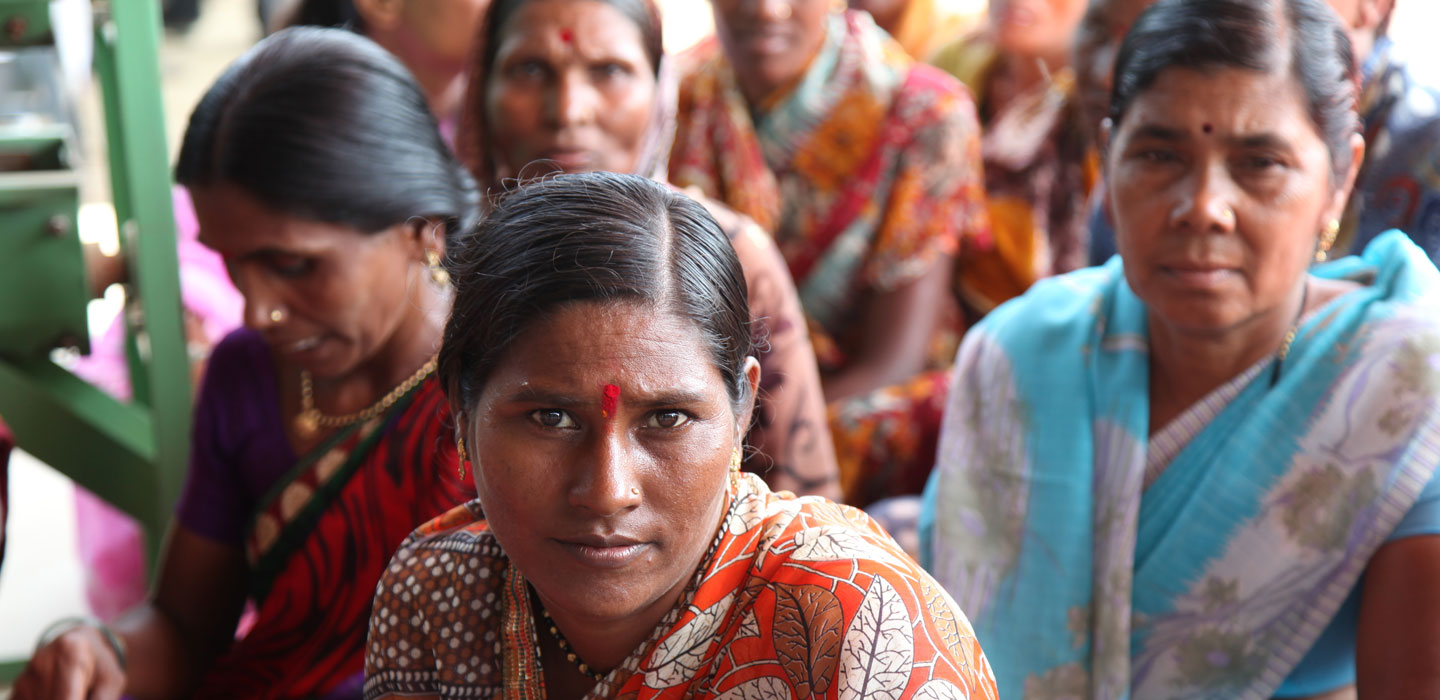16 days of activism against gender-based violence: Building a brighter future for women and girls
IFAD Asset Request Portlet
Asset Publisher
16 days of activism against gender-based violence: Building a brighter future for women and girls
Estimated reading time: 3 minutes
Violence against women is far more than a violation of human rights. It undermines women’s physical and mental health, as well as their ability to be happy and productive members of their societies. It is also a manifestation of gender inequality within those societies.
Today, we must reckon with the reality that violence against women is escalating around the world. The lockdowns and quarantine measures enacted as a result of the COVID-19 pandemic, along with the social isolation they have caused, are contributing to an alarming increase in physical, psychological, sexual and economic violence against women. Equally worrying, an increase in violence against children has also been reported.
On 25 November, IFAD, along with our partners FAO and WFP, will reflect on these realities as we kick-start our 16 Days of Activism against Gender-Based Violence campaign. For our opening ceremony, we are honoured to be joined by Indian filmmaker Vibha Bakshi, who will deliver the keynote address. Her work – including the recently released Son Rise, an award-winning documentary that details the reality of gender-based violence in India’s Haryana State – is relevant both to this year’s campaign and to IFAD’s long-standing efforts in service of gender equality.
Son Rise tells the story of Kusam and her husband Jitender, a rural farming family. Before the couple met, Kusam survived a brutal ordeal in which she was repeatedly blackmailed and gang-raped by eight men over a period of 18 months. The film details Kusam’s resolve and Jitender’s tireless efforts to secure justice. It also follows the story of local village leaders and their efforts to reduce gender discrimination and violence by changing the patriarchal norms of their communities.
Son Rise won Best Film at the 2019 National Film Awards in India. It represents Bakshi’s contribution to the United Nations HeforShe project, a global solidarity movement that seeks to engage men and boys to advocate for gender equality.
“The conversations you see in the film are conversations that must happen everywhere,” says Bakshi. “And they must happen with men and boys at the centre, focusing on the essence of masculinity.”
Bakshi’s words also resonate with IFAD and our work to address gender inequality and stop gender-based violence. In the rural communities where we work, we have seen gender-based violence occur all too often as men seek to maintain existing power imbalances and economic dependencies. In particular, women seeking to enter the agriculture sector are sometimes at risk of suffering violence at the hands of their partners.
To address these realities, IFAD focuses its efforts on strengthening women’s representation in debates and decision-making processes in their communities and supporting women as they take up leadership positions – for example, in their local farmers’ organizations. We also work simultaneously at the household level. As part of our Household Methodologies (HHM), we bring men and boys into the discussions surrounding positive behaviour change. The HHM approach also promotes women’s economic independence by strengthening their access to land, credit and productive resources.
We understand that the mindsets and behaviours often seen in men from these communities have to undergo a significant transformation process in order to foster new norms that will perpetuate gender equality. Therefore, it is essential that they understand that HHMs are not about disempowering men. Rather, HHMs are about empowering households to address gender inequalities for the benefit of all and to advance the achievement of the household’s vision for the future.
Employing this approach delivers results. We have seen that the rates of gender-based violence in households and communities implementing HHMs, especially violence stemming from disputes over ownership and access to and control over resources, can fall considerably.
Physical, sexual and domestic violence, exploitation and discrimination are more than a violation of a woman’s integrity. They are a violation of women’s rights. They impede the achievement of gender equality and undermine the contribution of women towards the development of their communities. Our shared vision of a future where everyone lives in peace and prosperity – as represented by the Sustainable Development Goals – can only become a reality when women are free from violence in all its forms.
As Bakshi reminds us, “Change cannot be forced. The men featured in Son Rise had their moment of realization. They changed. When other men realize, they will change too.” For IFAD, and the rural women and men we work with, this change holds the key to a brighter, more sustainable future for all.
Learn more about IFAD’s support for gender equality.
Publication date: 24 November 2020